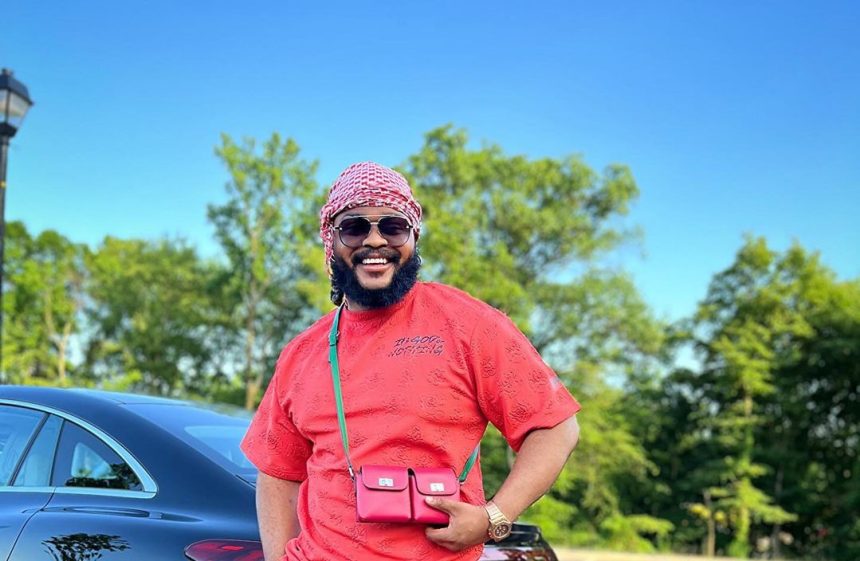Former Big Brother Naija winner Whitemoney has sparked a candid discussion about the intersection of romance and economics in contemporary Nigeria, revealing that his current single status is not by choice but rather a reflection of the country’s challenging economic climate.
The Season 6 champion of the popular reality show has opened up about the financial pressures associated with modern relationships, offering a revealing glimpse into the challenges faced by young Nigerians navigating the dating scene amid economic uncertainty. His admission, punctuated with the telling statement “Who dey toast woman for the economy? I great you I,” has resonated with many young Nigerians facing similar predicaments.
The reality star’s confession has touched a nerve in Nigerian society, where traditional expectations of male financial responsibility in relationships often clash with the harsh realities of a struggling economy. Whitemoney’s candid admission highlights a growing trend among young Nigerian men who find themselves hesitant to pursue romantic relationships due to financial constraints.
His statement has generated significant social media discussion, with various users offering perspectives that range from sympathetic understanding to pointed criticism. The conversation has evolved into a broader debate about gender roles, economic pressures, and the changing nature of relationships in modern Nigeria.
User @_Stonedaddy captured the sentiment of many male respondents, commenting, “Life of a man tough, everyone wanna be a woman by force. Just See this.” This response reflects a growing discourse about the challenges men face in meeting traditional expectations of financial provision in relationships.
However, not all reactions have been supportive. Some social media users, like @bchorilah, have questioned the sincerity of Whitemoney’s statement, suggesting it might be an attempt to stay relevant: “Since them mention white money name for the list him just dey Jam talk anyhow…” This skepticism points to the complex relationship between celebrity status and public declarations about personal matters.
The discussion has also taken some humorous turns, with user @living_largee offering an unexpected comparison: “Who join cult for Benin get peace of mind pass who de relationship this days,” highlighting the perceived stress of maintaining relationships in current economic conditions.
Whitemoney’s revelation comes at a time when Nigeria is grappling with significant economic challenges, including high inflation rates and rising living costs. His comments have sparked a broader conversation about how economic conditions are reshaping social relationships and traditional dating practices in the country.
The reality star’s statement has particularly resonated with young professionals who find themselves caught between societal expectations and economic realities. His openness about the financial demands of relationships has helped normalize discussions about the economic aspects of dating and relationships in modern Nigeria.
Interestingly, the discussion has also prompted questions about gender dynamics in relationships, as evidenced by @evelyn___xx’s comment: “Men bill their fellow men? I didn’t know.” This response highlights the ongoing debate about financial expectations and gender roles in Nigerian relationships.
Some social media users have approached the topic with humor and resignation, as demonstrated by @perpetual_bay’s comment: “Make Una find one relationship put me bfor,” suggesting that the challenges of finding and maintaining relationships extend beyond just economic factors.
Whitemoney’s confession has inadvertently sparked an important dialogue about the evolving nature of relationships in Nigeria’s current economic climate. His status as a celebrity and former BBNaija winner adds weight to these observations, as it suggests that even those who have achieved some measure of success still grapple with these societal pressures.
The discussion highlights a growing trend among Nigerian youth to prioritize financial stability over romantic relationships, challenging traditional societal expectations about marriage and relationship timelines. It also raises questions about the sustainability of traditional dating practices in an increasingly challenging economic environment.
As Nigeria continues to navigate its economic challenges, Whitemoney’s candid admission may serve as a catalyst for more open discussions about the relationship between economic stability and romantic relationships. His statement reflects a broader societal shift in how young Nigerians approach dating and relationships in the face of financial constraints, suggesting that traditional expectations may need to evolve to match economic realities.




